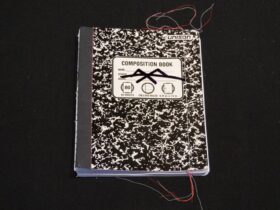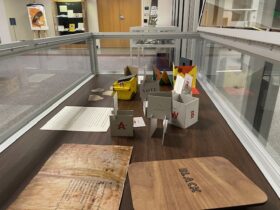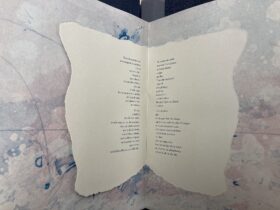 Blood Passion: The Ludlow Massacre and Class War in the American West by Scott Martelle (New Brunswick, N.J.: Rutgers University Press. 2007) recounts the events that led to the Ludlow Massacre, the culminating battle of the 1913–1914 Colorado coal miners’ strike. For several months preceding the massacre, union organizers from the United Mine Workers of America (UMWA) traveled throughout southern Colorado to organize a strike by the mine workers of the Rockefeller family’s Colorado Fuel & Iron Company (CF&I) to protest better working and living conditions. In September 1913 the coal miners agreed to strike after CF&I refused to meet with the UMWA to discuss their grievances. Shortly thereafter, the coal miners and their families were evicted from their company housing and a tent colony, consisting of 1,100 miners and their families, was established by the UMWA on vacant land near the mines in the Town of Ludlow.
Blood Passion: The Ludlow Massacre and Class War in the American West by Scott Martelle (New Brunswick, N.J.: Rutgers University Press. 2007) recounts the events that led to the Ludlow Massacre, the culminating battle of the 1913–1914 Colorado coal miners’ strike. For several months preceding the massacre, union organizers from the United Mine Workers of America (UMWA) traveled throughout southern Colorado to organize a strike by the mine workers of the Rockefeller family’s Colorado Fuel & Iron Company (CF&I) to protest better working and living conditions. In September 1913 the coal miners agreed to strike after CF&I refused to meet with the UMWA to discuss their grievances. Shortly thereafter, the coal miners and their families were evicted from their company housing and a tent colony, consisting of 1,100 miners and their families, was established by the UMWA on vacant land near the mines in the Town of Ludlow.
By the spring of 1914, strike-related tensions between the miners and CF&I escalated to the point that the National Guard was called in to contain the situation. On April 20, 1914 a full-scale battle erupted between the strikers and the National Guard at the Ludlow tent city killing several people, including women and children, during the course of the battle.
For his book, Scott Martelle, researched the Lamont Montgomery Bowers Papers, held in the University Libraries’ Special Collections. Bowers, a native of Binghamton, N.Y., managed CF&I. After the massacre, an investigation ensued into the coal strike and CF&I’s role. Of all of those involved, from the National Guard to the owners and company management, Lamont Montgomery Bowers was the only one to be held accountable for the violence. As a result, Bowers was quietly removed from the company and returned to Binghamton, never coming to terms with being Rockefeller’s scapegoat.
This book is available to read in Binghamton University Libraries’ Special Collections. To learn more about Bowers’ connection to the Ludlow Massacre and the Colorado Fuel & Iron Company, visit Special Collections to examine the Lamont Montgomery Bowers Papers, or go to the finding aid online at https://bit.ly/2PmjZ9W
Special Collections is located on the second floor of the Glenn G. Bartle Library (off of the North Reading Room). Our hours are Monday – Friday, 10:00 a.m. – 4:00 p.m.





